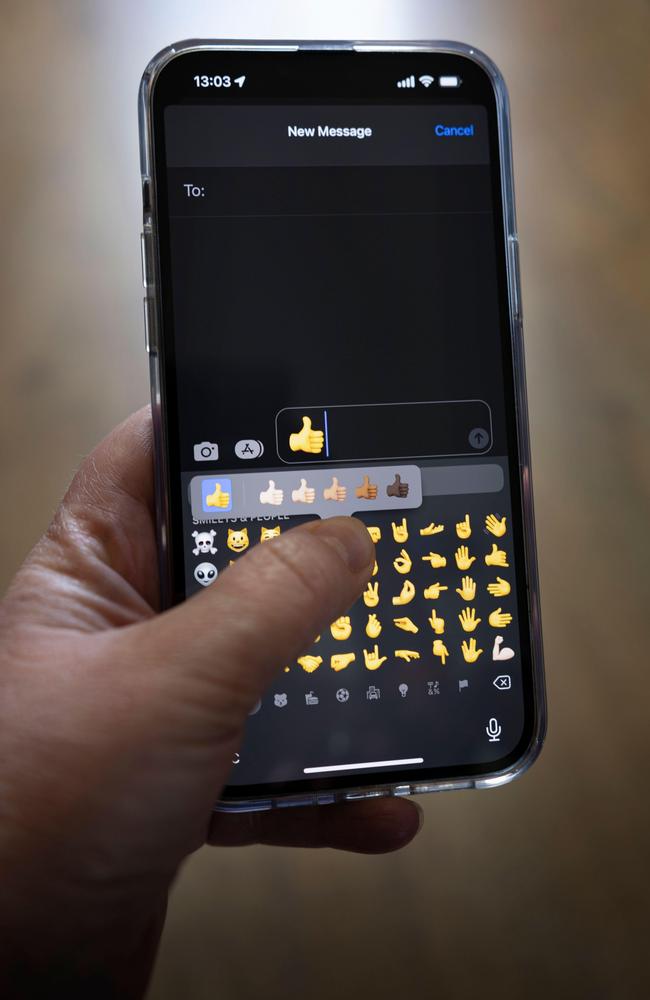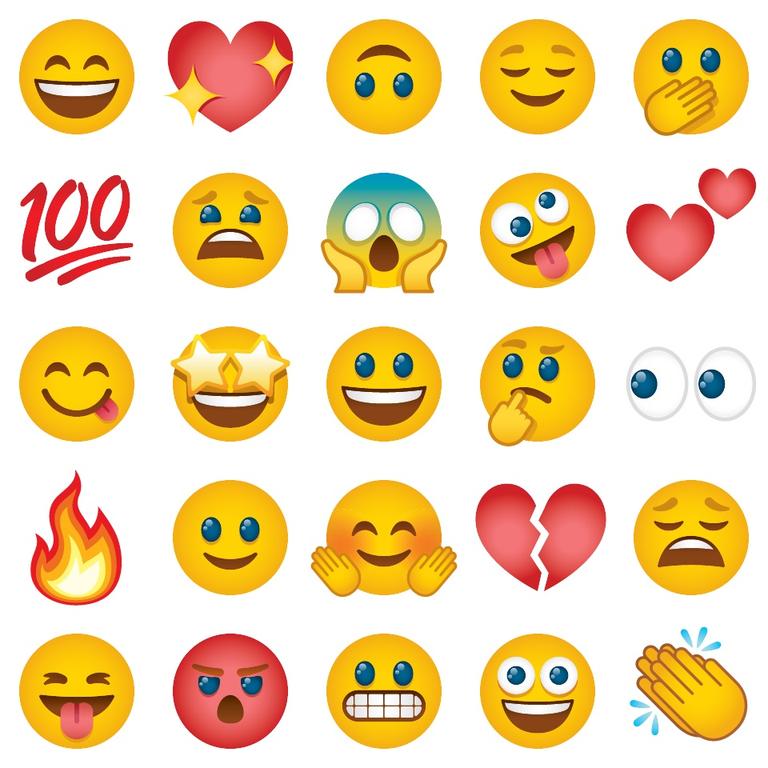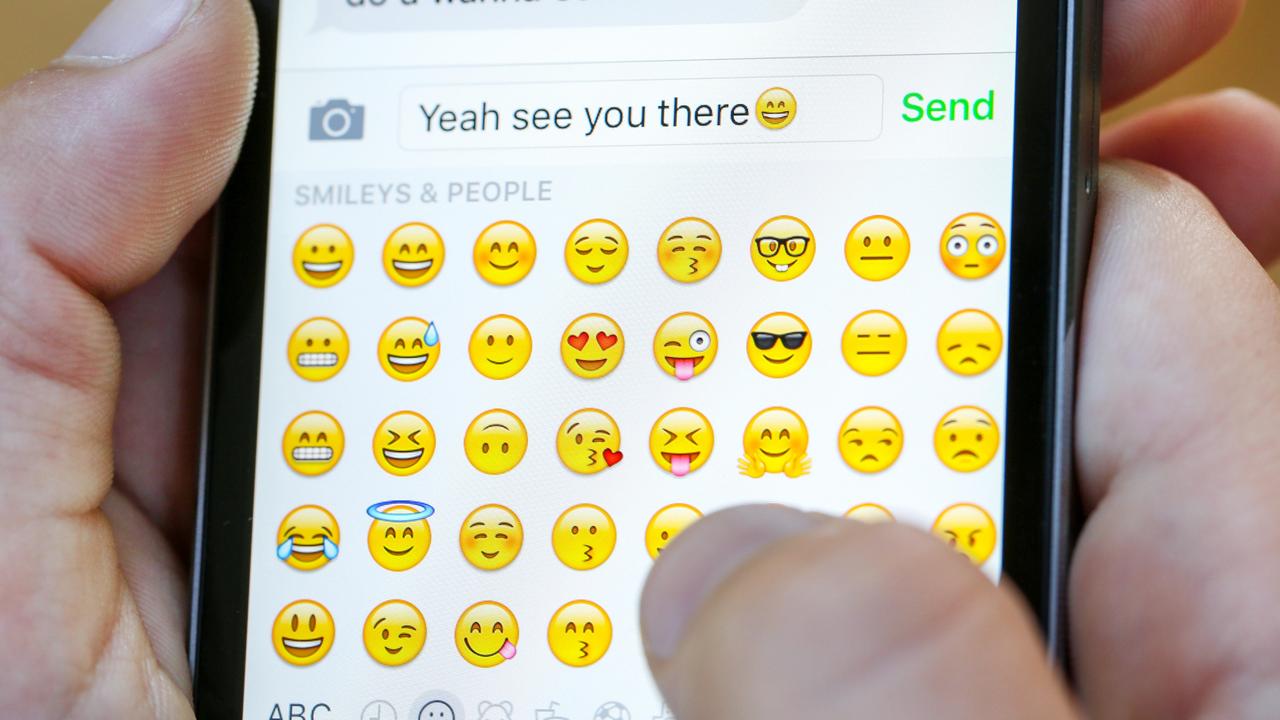Emojis that make you more likeable as Gen Z ‘cancelled’ thumbs-up
Gen Zers have called out a popular emoji for being “rude”, but now a study has revealed the top three emojis that make you “less likeable”.
Gen Zers have called out the popular thumbs-up emoji for being “rude” and “hostile,” going so far as to say that they feel attacked whenever they see it used in the workplace, but other emojis can be used to help you come across as “more likeable.”
A recent study conducted by Adobe surveyed 5,000 emoji users from the United States and found when, why and how Americans are using emojis, including the ones to help you become “Miss or Mr. Congeniality.”
The emoji blowing a heart kiss, the blushing smiley circled by hearts and the heart-eyed emoji were rated as the top three emoticons that “make you more likeable.”
“Emoji are a great way to mitigate potential misunderstandings — a quick smiley face on the end of your message can go a long way,” said Kamile Demir, a computer scientist at Adobe and Adobe representative on the Unicode Emoji Subcommittee.

But before you start sending heart-eyed emojis to your boss and dog walker, it should be noted that the previously listed emojis only seem to make you “more likeable” when flirting.
Using the right emoji — especially in the workplace — positively impacts likability (69 per cent) and credibility (59 per cent), but when used incorrectly it could lead to some uncomfortable situations, like when your babysitter takes your kissy emoji the wrong way.
Sometimes just a simple smiley will do.
“One of my favourite things about emoji is their ever-changing nature. Meaning only arises in the context of communication with others, and emoji can mean whatever you want them to mean,” Paul D. Hunt, typeface designer and font developer at Adobe, explained. About 50 per cent of Americans use emojis differently from their intended meanings, which often vary by generation and with pop culture trends.

The most misunderstood emoji at the moment is the smiley wearing a cowboy hat. According to Emojipedia, it “may convey a sense of exuberance, whimsy, confidence, adventure or other sentiments,” but other websites list a variety of other meanings. Dictionary.com lists the emoji’s meaning as meant “for all things country, from ranch life and country music to cowboy boots and Texas football … Texas forever y’all — we have the face with cowboy hat emoji.”
“More playfully, it can suggest someone is having a root-tootin’ good time or feels empowered, like a new sheriff in town,” they added.
After the cowboy, the most misunderstood are the cherries and upside-down smiley faces, which is “commonly used to convey irony, sarcasm, joking, or a sense of goofiness or silliness,” according to Emojipedia.

“Its intent can be similar to the bemused Oh well! of Person Shrugging or the shruggie emoticon, ¯_(ツ)_/¯,” they added.
As for cherries, Emojipedia says they “may be used to refer to breasts on TikTok and other social media platforms.”
So maybe halt before sending those to someone outside of your generation or inner circle — 80% of Americans agree that you should only use emojis you fully understand.
Whether you understand their meaning or not, the top emojis that “make you less likeable” are the pile of poop (which especially holds true for women), the yellow angry face with the furrowed eyebrows and the succulent eggplant.
These emojis are the most likely to have your correspondent hit you back with a bright red X and are considered the biggest turn-offs for daters.
Emojis can be a great way to help you convey a message — just make sure it’s the message you meant to send.
This article originally appeared on theNew York Post and was reproduced here with permission





